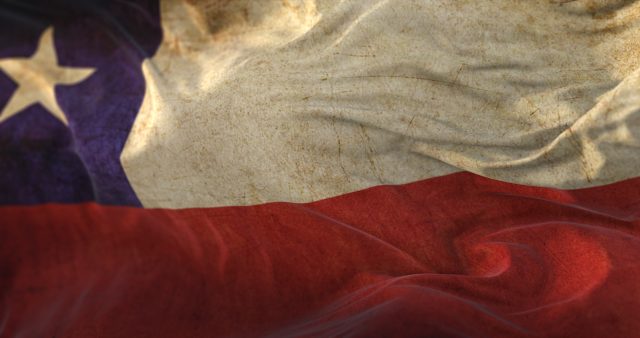
In late August, a number of Democratic Latino U.S. Congress members, led by Alexandria Ocasio-Cortez (New York), visited Brazil, Chile and Colombia. The three countries’ governments represent the new leftist wave recently elected in the region.
The delegation included Joaquin Castro and Greg Casar (both from Texas), Nydia Velázquez (New York) and Maxwell Frost (Florida). Castro is a member of the Subcommittee on the Western Hemisphere, which is part of the Congressional Foreign Affairs Committee. They were joined by Misty Rebik, Sen. Bernie Sanders’ chief of staff.
Sanders offered his support, saying: “The United States shares critical challenges with our friends in Latin America, but we have too often prioritized corporate interests or great power competition in our historical engagement with the region. I hope this delegation will help present a new face to the hemisphere, one based on engagement for the sake of people and planet.”
The delegation said the future of democracy in the United States is inextricably tied to Central and South America. They cited the “twin” insurrections, one in Washington, D.C. on Jan. 6, 2021, the other in Brasília on Jan. 8, 2023, when thousands of supporters of president Jair Bolsonaro, fueled by an avalanche of misinformation about election fraud, stormed and trashed government buildings to keep the far-right “Trump of the Tropics” in power even though he lost the election.
The U.S. envoys met with presidents Lula da Silva (Brazil), Gabriel Boric (Chile) and Gustavo Petro (Colombia) and parliamentary representatives. They also met with civil society organizations that work “on the frontlines of ecological transitions, democratic transformations and peace negotiations in the countries,” the delegates explain in a joint statement.
“The U.S. needs to publicly acknowledge the harms we’ve
committed through interventionist and extractive policies and chart a new course based on trust and mutual respect,” Ocasio-Cortez told the Los Angeles Times.
While in Chile, AOC said the U.S. needs to declassify documents that could shed light on Washington’s involvement in Chile’s 1973 military coup. Much has been revealed over the years, but Chile’s President Boric has demanded the release of all documents.
Sept. 11 is the 50th anniversary of the coup. It is known around the world as “the other 9/11” and is interestingly commemorated in numerous events in Britain. The democratic election of socialist Salvador Allende in 1970 created a panic in Washington. In secret communications, President Nixon’s Secretary of State, Henry Kissinger, was alarmed that Allende would create a good example of an attractive socialist democracy that might be copied in Latin America and even Western Europe.
The Nixon administration launched a massive political and economic destabilization campaign using terrorist acts, manipulation of Chile’s media and international economic institutions. Nevertheless, Allende’s popularity rose.
Guardian columnist Andy Beckert notes: “The Allende government was an argumentative and ambitious coalition which, almost uniquely, attempted to create a socialist country with plentiful consumer pleasures and modern technology, including a kind of early internet called Project Cybersyn, without Soviet-style repression.” The conservative British newspaper The Daily Mail said the computing project was “an astonishing experiment.” It would be destroyed after the coup.
Unfortunately, the 17-year military dictatorship of General Augusto Pinochet pioneered a different experiment called “neoliberalism,” which involved harsh free-market policies that would spread across the world. Since it involved mass misery, the citizenry had to be disciplined through murder, torture and mass incarceration. It would be a model for Ronald Reagan and Margaret Thatcher. But it was milder in the U.S. and Britain due to pesky democratic elections and opposition parties.
But many on the U.S. far-right yearn for the purer Pinochet stuff. Years ago, some on the internet “jokingly” threatened to “take someone for a helicopter ride.” During Pinochet’s rule, dissenters had been tossed from helicopters into the ocean, lakes and rivers.
The violent Proud Boys began to use the helicopter rides meme on T-shirts, flags and posters with the slogan “Pinochet Did Nothing Wrong.” There are spin-offs featuring Roger Stone, Enrique Tarrio and Trump.
After the collapse of the Soviet Bloc, Pinochet became a popular icon among oligarchs. They wanted capitalism without democracy. Greg Palast documents Putin’s rise to power in his March 22, 2022 Buzzfeed essay “How Billionaires Picked Putin as ‘Russia’s Pinochet.’ ”
“Vladimir Putin did not arrive from outer space on an abalone shell,” writes Palast, but rose from unknown deputy mayor of Saint Petersburg to Russia’s president by winning a competition organized by billionaire Boris Berezovsku, who sought a “Russian Pinochet” to succeed Boris Yeltsin as President.
“The competition, dubbed ‘Operation Successor,’ went so far as to send Russia’s ‘Larry King,’ Mikhail Leontyev, to interview General Pinochet for Russian TV while Pinochet was under indictment in Chile on murder charges,” Palast writes. “Russians were treated to the old dictator’s advice on choosing a leader who could imitate Pinochet’s ‘strong hand,’ a police state, while promoting a hyper-capitalist economy.”
“And Putin fit the Pinochet profile.”
This opinion does not necessarily reflect the views of Boulder Weekly.














